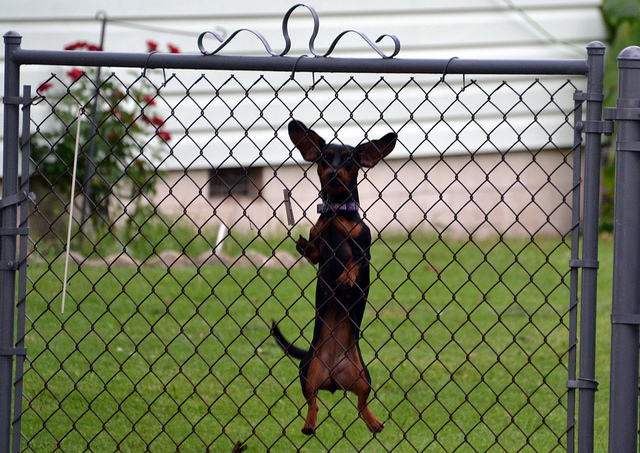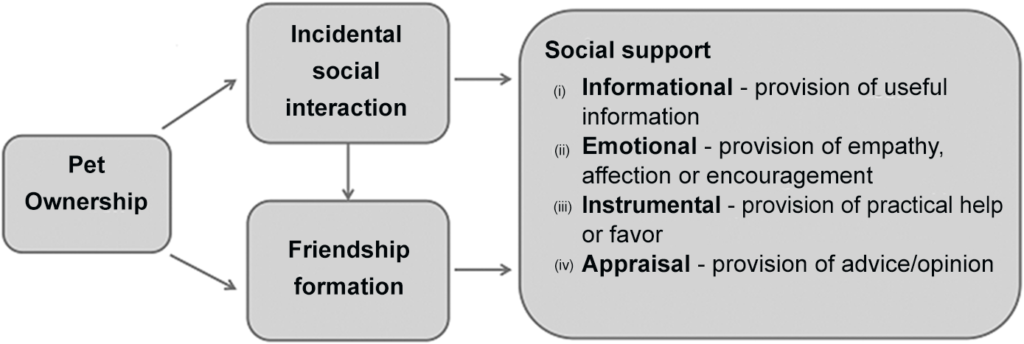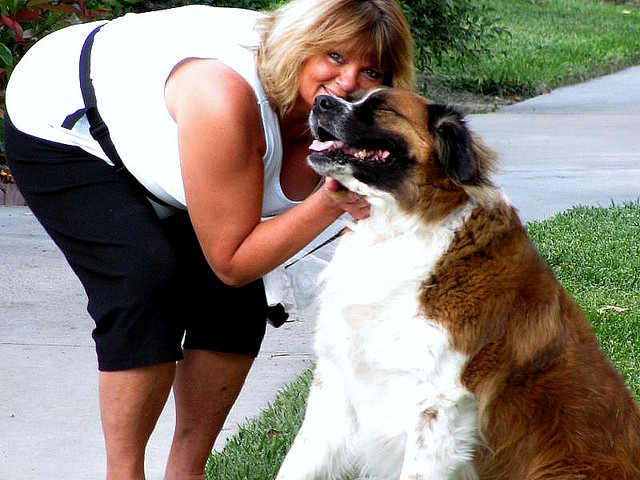Dogs are often seen as a source of tension between neighbors – excessive barking, loose dogs wandering into yards and getting into garbage, and of course, dog’s using neighbor’s yards as bathrooms or walkers not picking up after their dogs on the sidewalks.

And, of course, there is also the breed issue.

None of this sounds like a recipe for a good relationship.
Yet, a study conducted by the University of Western Australia with a grant from the WALTHAM Centre for Pet Nutrition (a subsidiary of Mars Petcare), say dogs may be a way to foster relationships within your neighborhood.
According to the research published in the journal PLOS One, the study investigated “the indirect role of pets as facilitators for three dimensions of social relatedness; getting to know people, friendship formation and social support networks.”

When asked why they conducted the study, Sandra McCune, WALTHAM’s Science Leader in Human-Animal Interaction told iHeartDogs.com:
“At Mars Petcare, we’re firmly committed to building A BETTER WORLD FOR PETS™. We also believe that our pets make the world a better place. We know from scientific studies that positive relationships with pets are good for individuals and are associated with a range of benefits to health and well-being. This study explored how pets can help connect people to each other in a community and positively facilitate neighborhoods in which people find friendship and social support networks. Understanding this is important because friendships and social support are protective factors for individual and community well-being; conversely social isolation and loneliness are risk factor for poor health.”
The Results
They conducted telephone surveys of randomly selected residents in four U.S. cities and one in Australia:
- Nashville, Tennessee
- Portland, Oregon
- San Diego, California
- Perth, Australia
The participants were asked about getting to know people within their neighborhood.
Pet owners were asked additional questions about the type/s of pet/s they owned, whether they had formed friendships as a result of their pet, and if they had received any of four different types of social support from the people they met through their pet.

They found that “Pet owners were significantly more likely to get to know people in their neighborhood than non-pet owners” (95%).
Interestingly, dog owners in the U.S. were significantly “more likely than owners of other types of pet to regard people whom they met through their pet as a friend.”
“It is not clear why we saw a difference in results between the U.S. cities and Perth,” McCune told iHeartDogs.com. “There may be many differences between the cities that could have contributed to this, including socio-cultural differences and practical differences in the urban environment.”
Around 40% of pet owners reported receiving one or more types of social support (i.e. emotional, informational, appraisal, instrumental) via people they met through their pet.

What Do You Think?
Obviously, this is a small sampling of dog owners and neighbors compared to the billions of people and millions of dogs that share neighborhoods across the globe. We want to know what YOUR experience has been!
